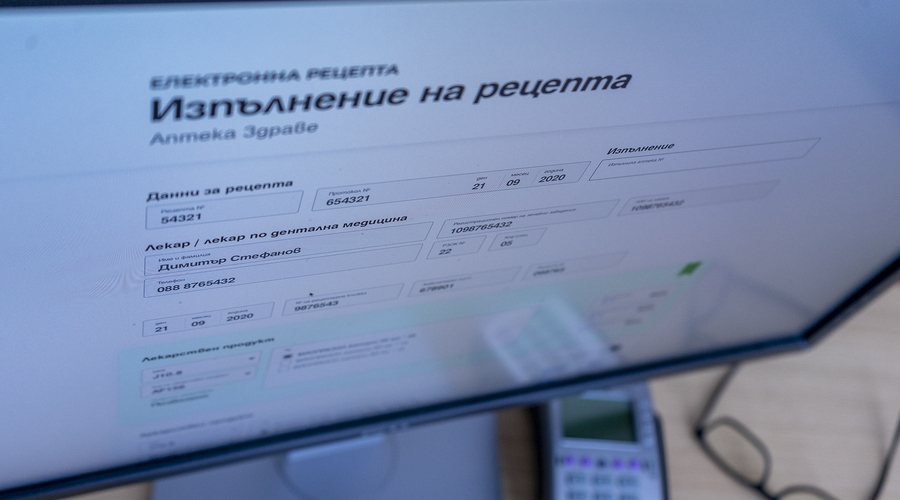Share

The total number of electronic prescriptions issued through the National Health Information System (NHIS) exceeded 20 million, with half of them implemented in the last 8 months. On average, over 68,000 e-prescriptions are issued daily. The centralized online system for prescribing and dispensing medicinal products was built by Information Services in record time and launched at the beginning of February 2021.
"Electronic prescriptions have rapidly reduced the risk of incorrect dispensing of medications and have greatly facilitated patients, doctors and pharmacists," the Information Services' CEO Ivaylo Filipov said. According to him, the module is one of the most frequently used electronic services in Bulgaria.
The total number of doctors who work with NHIS is over 15,000, and more than 3,550 pharmacies from all over the country are successfully connected to the system. Over 4,000 pharmacists successfully fulfill patients' e-prescriptions.
The module for registering electronic examinations in NHIS also achieves impressive results. In less than 8 months, over 10 million e-examinations have been registered through the system. On average, 130,000 e-examinations are issued daily. The system enables complete electronic documentation and storage of all medical examinations. Through the electronization of the process, all patients and authorized healthcare persons have full traceability of diseases, diagnoses, prescribed therapies, examinations, etc.
By now, more than 5 million electronic referrals have been issued through the NHIS. Almost 2.8 million of them are referrals for laboratory procedures. In less than 3 months, since the new functionalities of the system have been launched, almost 2 million referrals for specialists, over 190,000 documents for highly specialized activities and 100,000 referrals for medical expertise have been issued. In less than a month, over 200,000 electronic referrals for hospitalization have been issued, with an average of over 10,000 electronic documents being registered daily. Over 350 medical institutions work with the e-hospitalization module.
"In less than 2 years, Information Services created the basic systems for the electronization of processes in outpatient and hospital care, that had been awaited for more than 20 years, which practically started electronic health care in Bulgaria," said CEO Ivaylo Filipov. According to him, by the end of the year, the patient's electronic medical record is expected to be completely updated through browser access, launch of a mobile application, introduction of an e-patient list, dental services, new registers and nomenclatures and other functionalities.